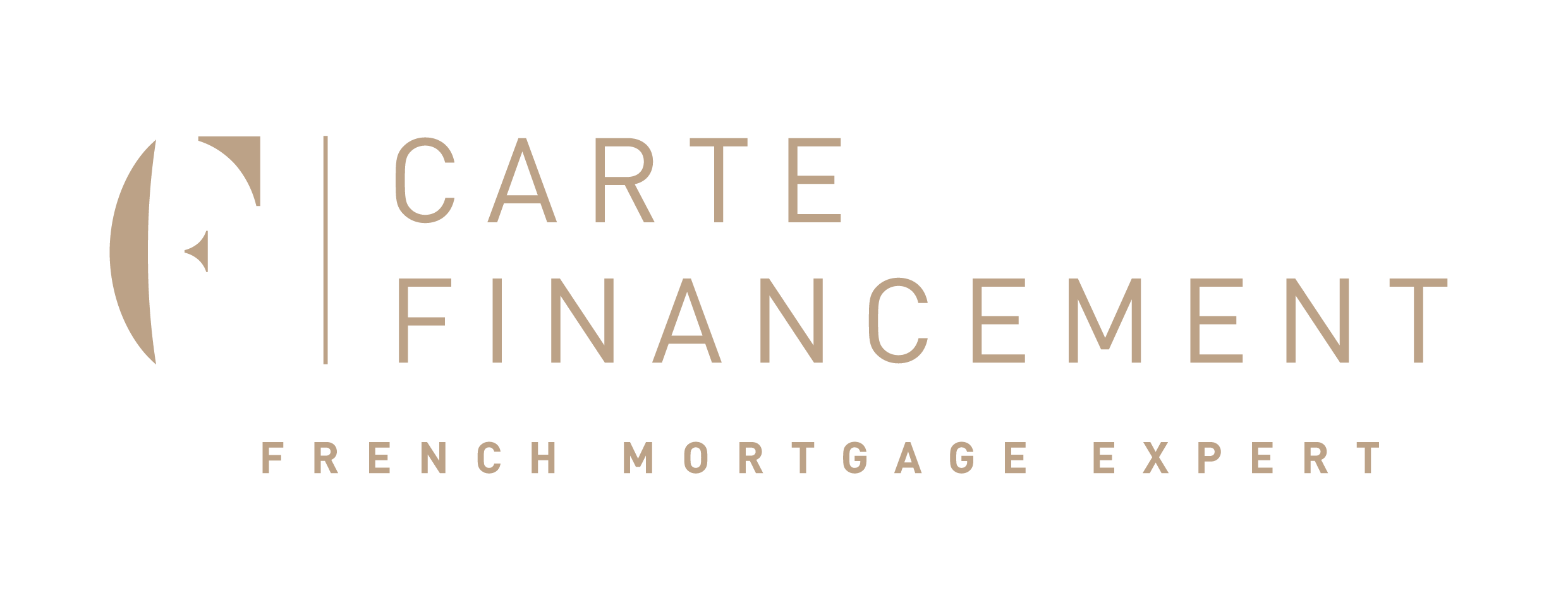Looking for a French mortgage means reading a lot French terms which may be specific to France and to which you might not be familiar with. Here is a little dictionnary of French mortgage terms.
Condition suspensive – condition precedent: private individuals who require a mortgage in order to purchase a property automatically benefit from this clause that makes the purchase conditional on obtaining the loan. The minimum period is 30 days and it is more usually 45 days, non-resident purchasers are recommended to allow 60 days.
Frais de garantie – guarantee fees: these are the fees demanded by French banks or mortgage-lenders, to enable the creditor to obtain a guarantee to cover non-payment by the borrower.
Hypothèque – mortgage: enables a property, whether resale or new-build, to constitute a loan guarantee should the debt or not be in a position to repay the amount owing. It is paid on the day on which the deeds are signed in front of the notary. The amount depends on the amount of the loan and is generally in the region of 1.5% of this. When the property is re-sold, the mortgage has to be discharged, which costs approximately 0.5% of the amount of the original loan.
PPD (privilège de prêteur de deniers) – moneylender’s preferential claim: this enables a bank, if the borrower has defaulted, to arrange for the property to be sold in order to recover the amount owing. The bank therefore has a preferential claim giving them priority over all other creditors. In general, the amount corresponds to 0.7% of the amount of the loan. The PPD is only valid for property already built. However, if you are making a VEFA purchase, you can subscribe to a PPD on that part of the building that has already been delivered AND a mortgage on the part still under construction. When the property is re-sold, the PPD will need to be discharged, which costs approximately 0.5% of the amount of the original loan.
Cautionnement – surety bond: In this case, a specialist organism ensures repayment of the loan to the bank should the borrower default. Crédit Logement is the best-known loan surety bond company in France. The cost of a surety bond is often approximately 1% of the amount of the loan and has to be paid before the lender will release the funds. This amount is paid once, in the form of a premium when the loan is put in place, and is often paid as a non-recoverable amount. The exception is the Crédit Logement, as a mutual guarantee fund it repays approximately 70% of the surety bond premium at the end of the loan.
Nantissement – lien: this is an additional guarantee that certain banks reserve the right to take out in the event of a payment default. The “nantissement” is a lien that can be taken over shares in a private company or in bonds or shares in companies quoted on the stock exchange. The lien is to the benefit of the bank. In the case of a share portfolio, the bank will calculate a credit value according to the assets that make up the portfolio. Subject to the bank’s control and as long as the credit value of the portfolio is not reduced, the client can continue to manage their portfolio normally, but the lien will remain in place throughout the life of the loan.
Frais de tenue de compte – bank account fees: the fees charged by the bank for managing your bank account.
Crédit amortissable – repayment loan: under this type of loan each repayment made by the borrower covers part of the capital and part of the interest. It is characteristic of the traditional French repayment loan that, at the beginning of the loan, the amount of interest repaid is higher than the amount of capital and that over time this ratio becomes inverted. In very rare cases, it may be possible to consider a constant repayment or a progressive repayment profile.
Crédit In fine – term loan: with this type of loan the borrower repays the capital in one single payment at the end of the loan period. Before that and during the entire length of the loan, only the interest is paid.
Assurance de prêt – loan insurance: this insurance covers both the borrower and the lender against risks such as death, invalidity or incapacity (it may also cover redundancy), and is usually required by the lender. Often the bank will impose their own loan insurance but you can also contact an insurance broker specialising in loan insurance for ex-pats to obtain a more competitive offer.
Déblocage des fonds – release or drawdown of the funds: this means that part or all of the amount of the loan has been paid to the borrower.


